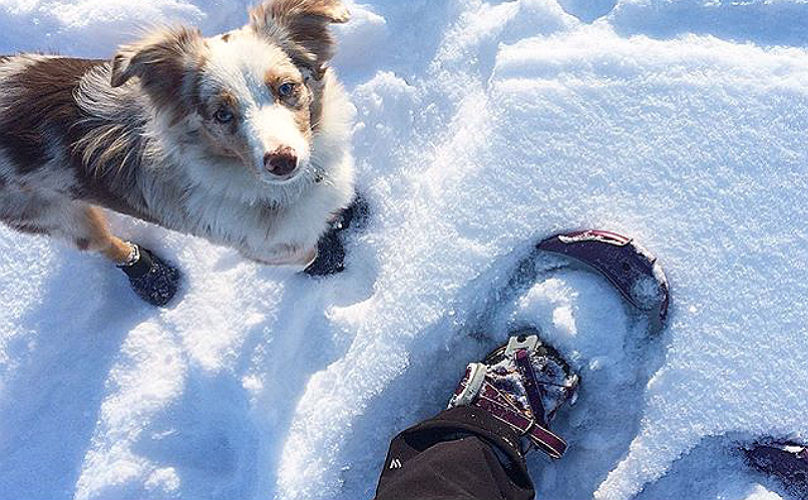Dogs, just like humans, can be prone to a variety of allergies. Some breeds, like Retrievers, Terriers, Setters, and flat-faced breeds (Bulldogs, Boston Terriers, Frenchies, etc) are more susceptible to allergies than others. Here are 15 allergies that may surprise you when it comes to your dog.
1. Airborne pollens
Pollen from grass, trees, flowers, and weeds can cause dogs to suffer from allergy symptoms such as inflamed skin or itchiness. Commonly affected areas are the skin, ears, and paws. Want to know how you can kick those pesky seasonal allergies to the curb? We’ve go you covered, here.
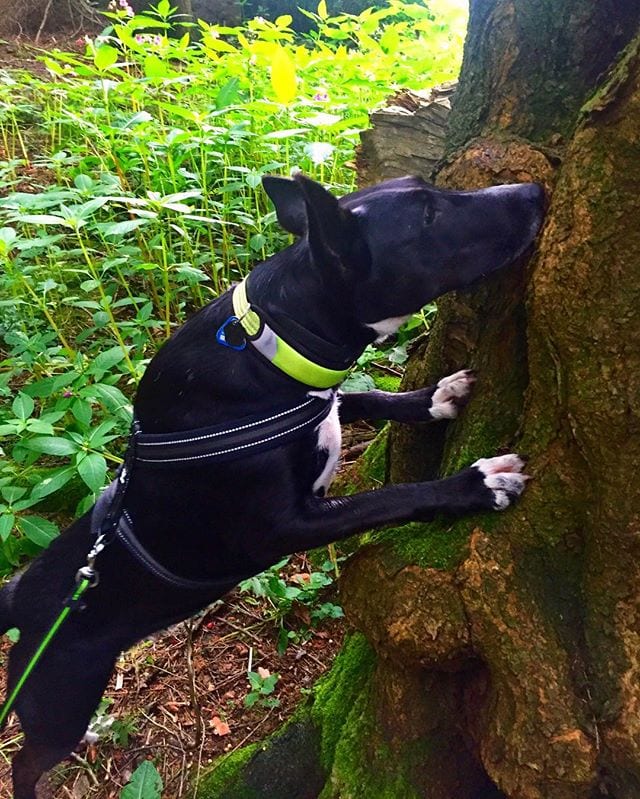

2. Mold spores
Mold is the second most common allergy for dogs and typically causes skin irritation. You can reduce mold levels in your home and alleviate some of your dogs allergy symptoms, by checking your house for signs of mold growth, spot cleaning when mold is present, adding dehumidifiers, and cleaning air conditioning filters.


3. Animal and human dander
That’s right, believe it or not, but your dog can actually be allergic to you! Dogs allergic to dander typically have itchy/inflamed skin and might sneeze or have a runny nose. Vets can treat a dander allergy with allergy shots or oral drops.


4. Feathers
If your dog has allergy symptoms, don’t dismiss feathers just because you don’t have a pet bird–dogs can be allergic to feathers found in down comforters, as well as pillows.


5. Cigarette smoke
Second hand smoke from cigarettes, as well as residual toxins left on unwashed hands after someone smokes, can cause dogs to suffer from allergic reactions. Symptoms can cause dogs to scratch or bite itchy. inflamed skin.


6. Food ingredients (e.g. beef, chicken, pork, corn, wheat or soy)
Food allergies can show up at any age, and can cause itchy skin, chronic ear infections, or stomach upset like vomiting and diarrhea.


7. Dust and house dust mites
Dust and dust mites (tiny microscopic spiders that live on mattresses, sofas, carpets, etc–GROSS) can cause some dogs to suffer from a skin disease called atopic dermatitis. If your dog suffers from a dust allergy it’s good to clean your dog’s bed at least once a week and vacuum bi-weekly.


8. Prescription drugs
Dogs can have allergic reactions to medicines like anesthetic drugs, antibiotics, and vaccines, as well as flea and tick medications. Common reactions include a swollen face, itchiness, and hives.
[bp_related_article]
9. Fleas and flea-control products
Dogs can be allergic to a flea’s saliva and suffer from a allergic reaction when bitten by a flea. The most common allergic reaction fleas is a skin disease called atopic dermatitis.
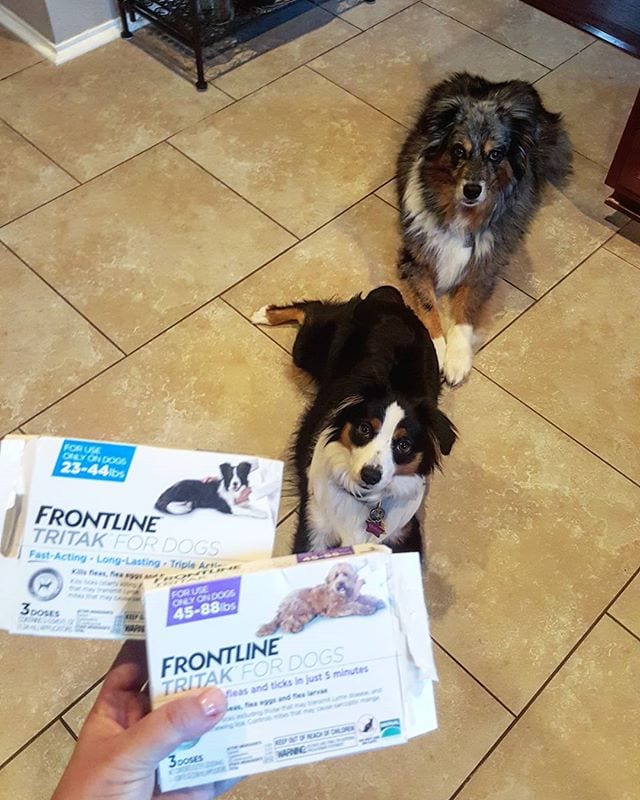

10. Perfume
Some dogs are sensitive to perfumes or other similar products like household air fresheners.
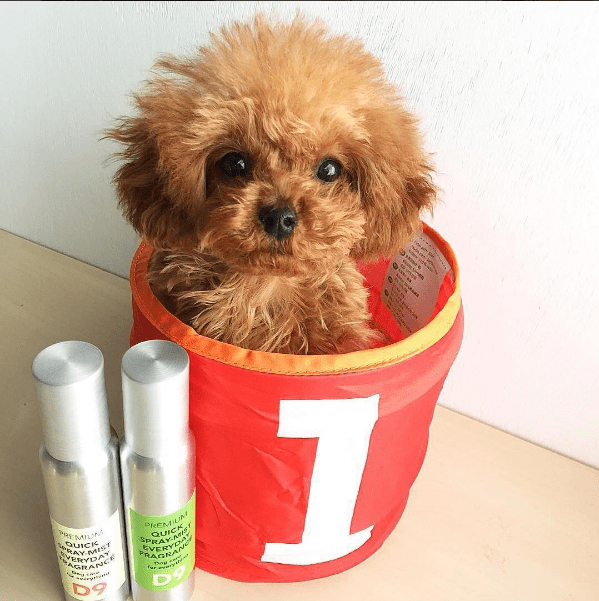

11. Cleaning products
Using powder based cleaning products, as opposed to spray or aerosol cleaning products, can help keep chemicals out of the air and away from your pet.


12. Fabrics
If your dog suffers from skin irritation, he may be allergic to the laundry detergent or fabric softener you use.
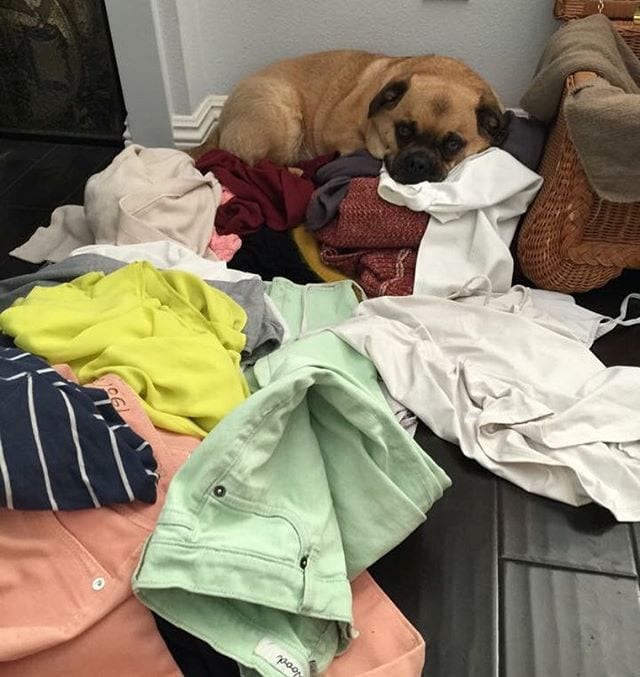

13. Insecticidal shampoo
Some dog’s can be sensitive to harsh shampoos used to kill fleas or ticks.
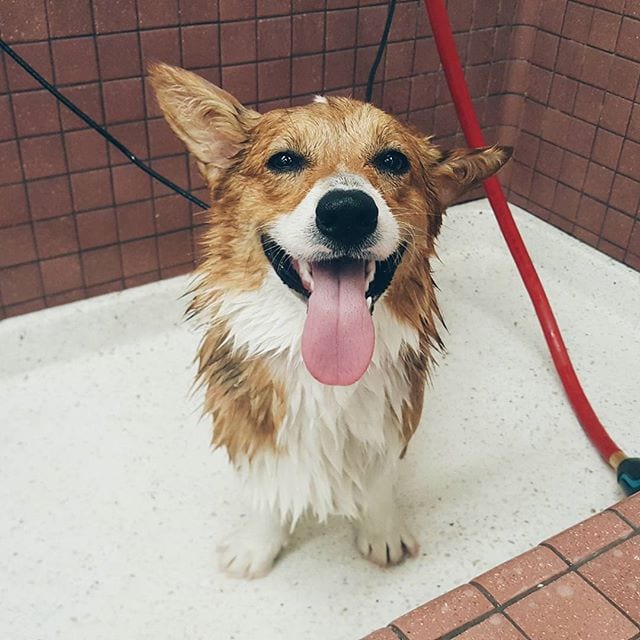

14. Rubber
Just like humans, dogs can also be allergic to rubber such as laytex. Many dog toys (balls, squeaky toys, etc) are made with laytex rubber and can cause a contact allergy when your dog plays with them.


15. Plastic materials
An allergic reaction to plastic can happen when a dog comes into contact with plastic objects, like a food or water bowl, or dog toy. Symptoms like inflamed skin or bumps, typically happen around the mouth, muzzle or nose.


Sources: National Geographic, Pet MD, everythingaboutdogallergies




